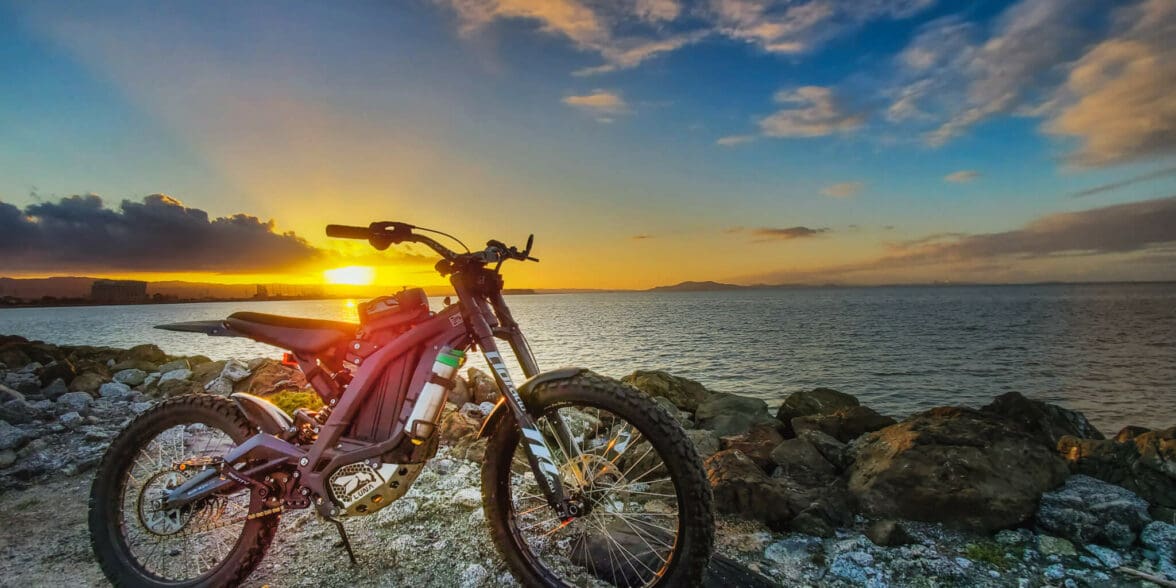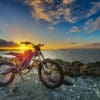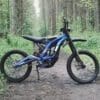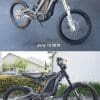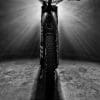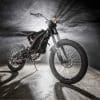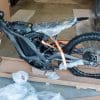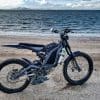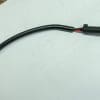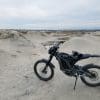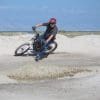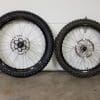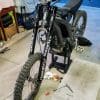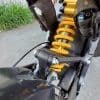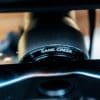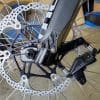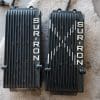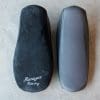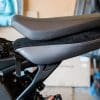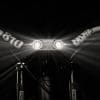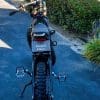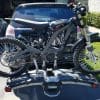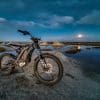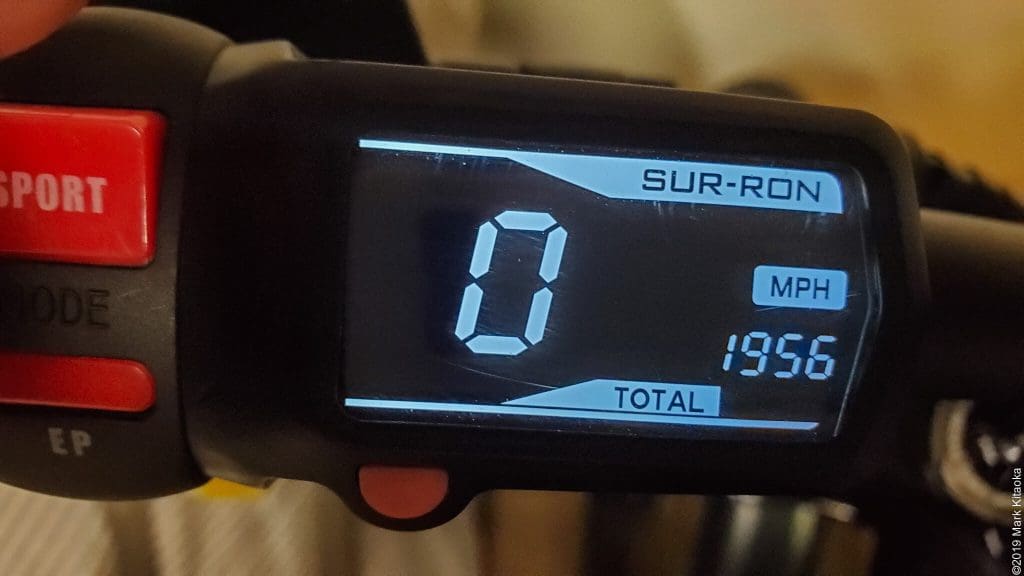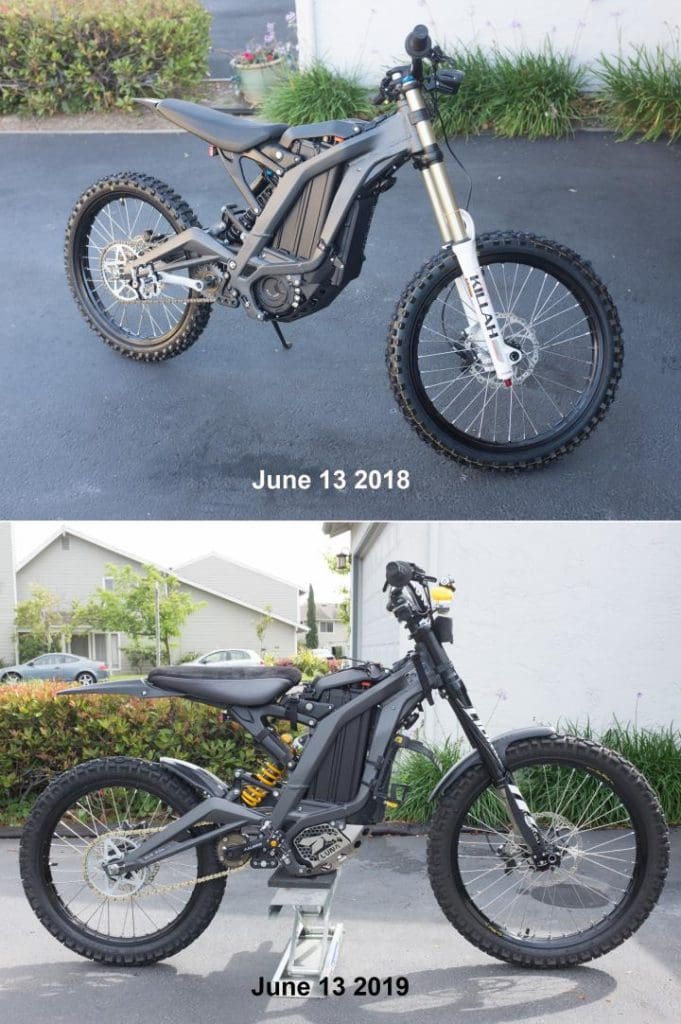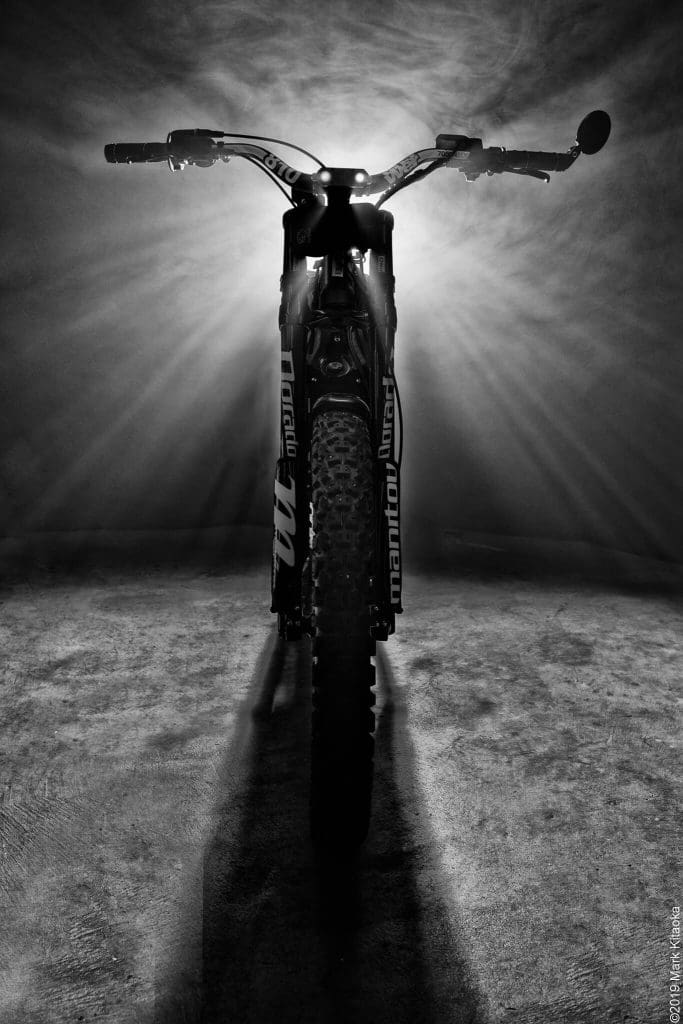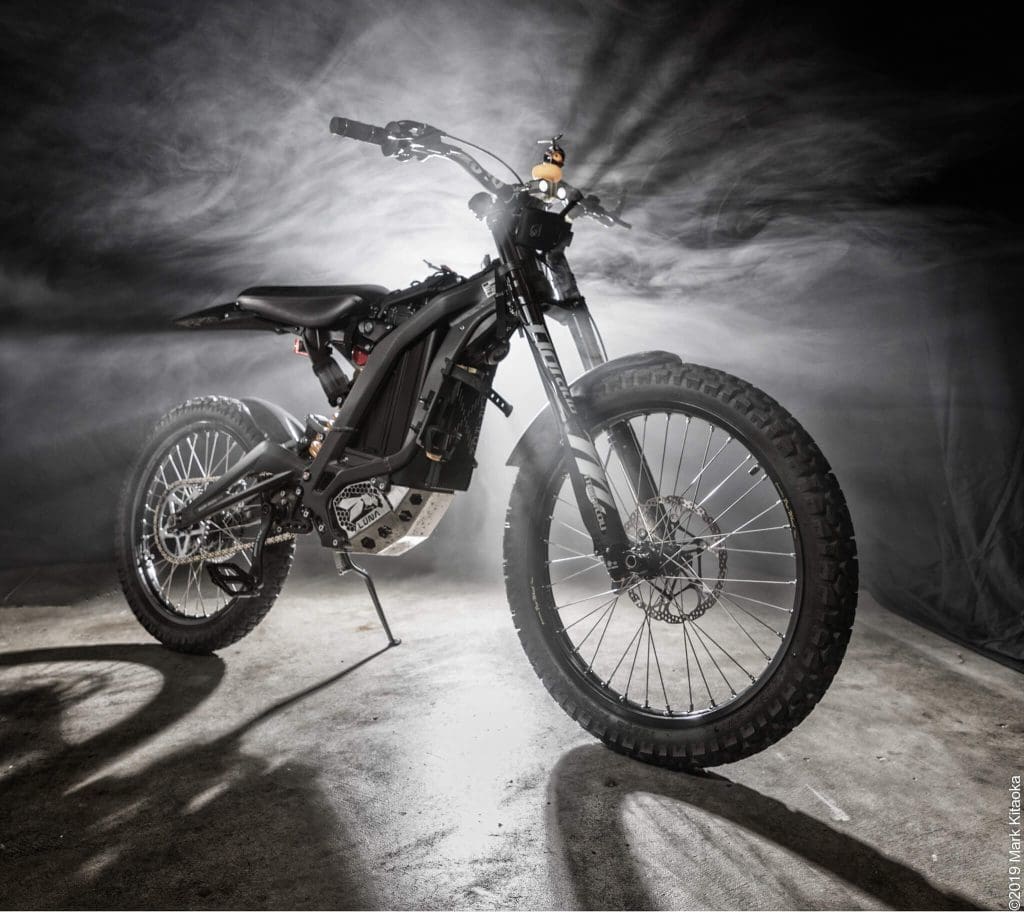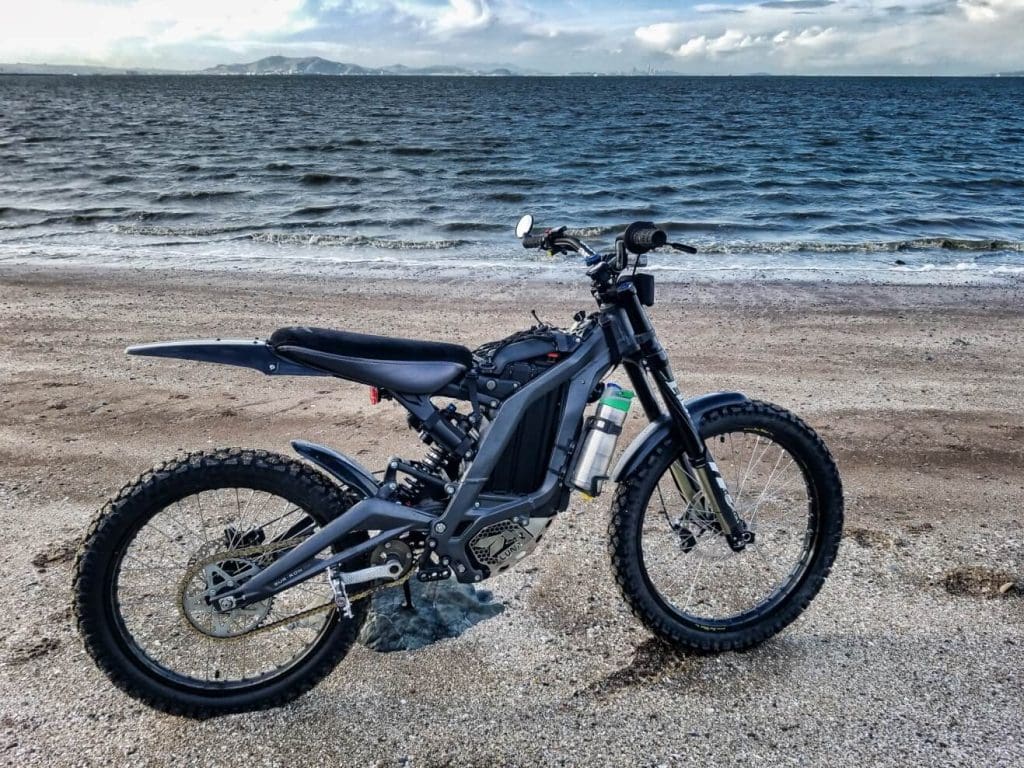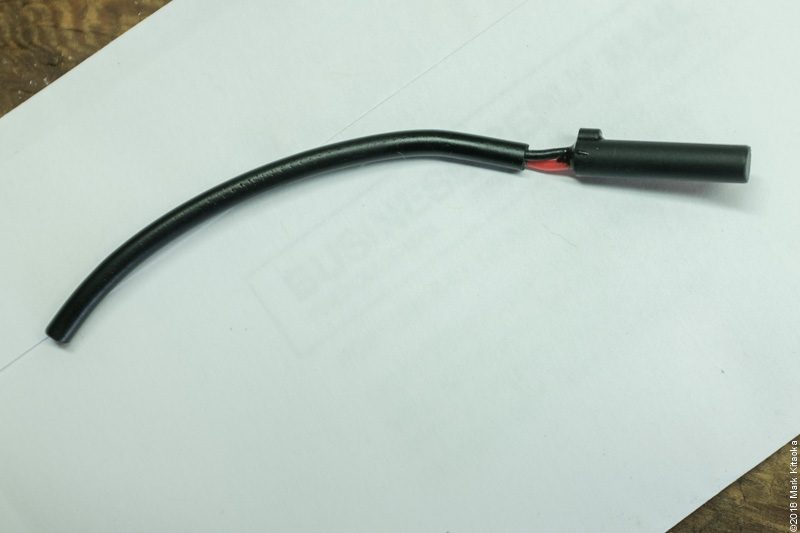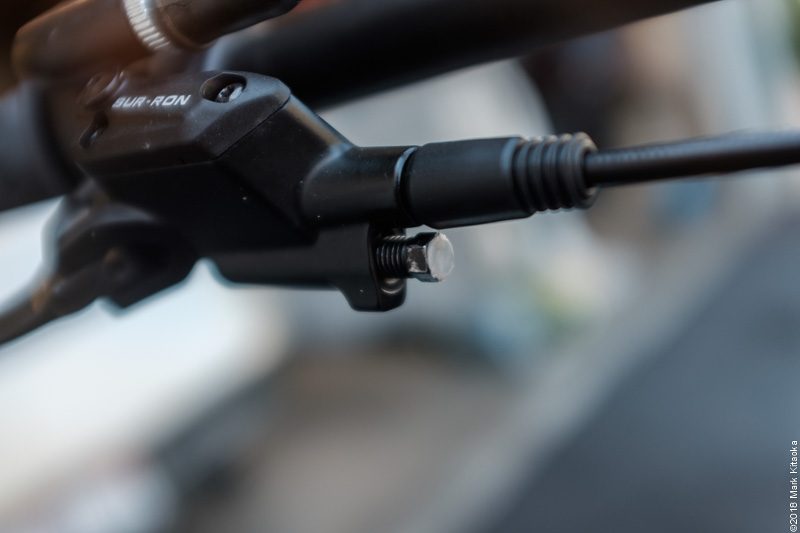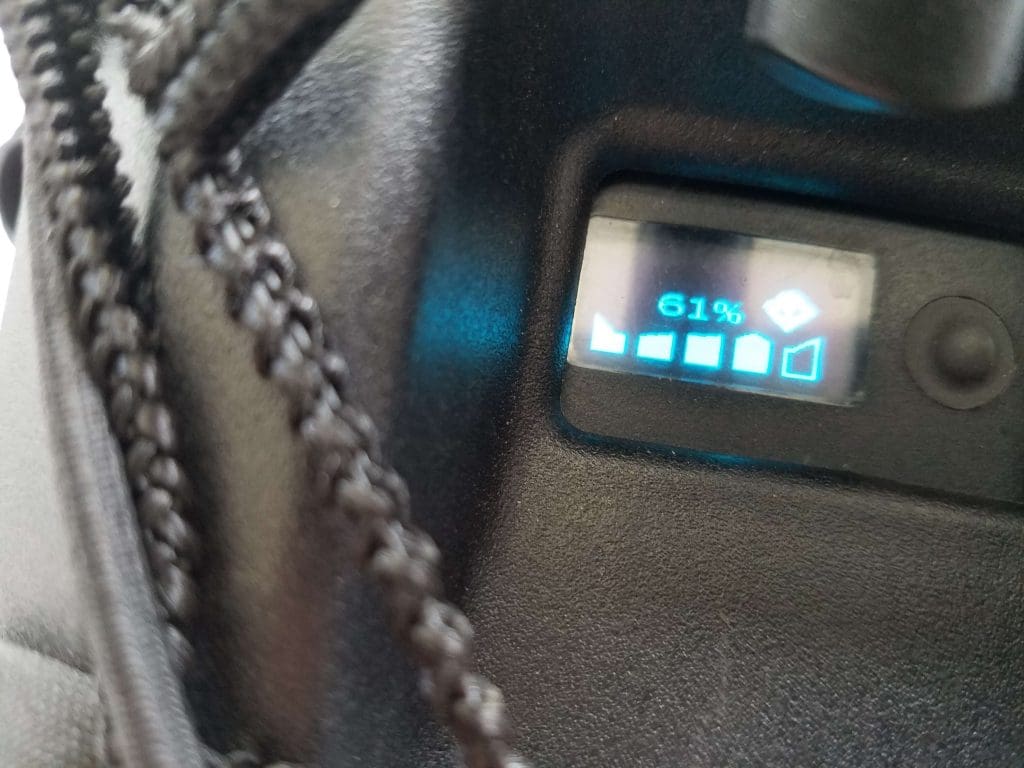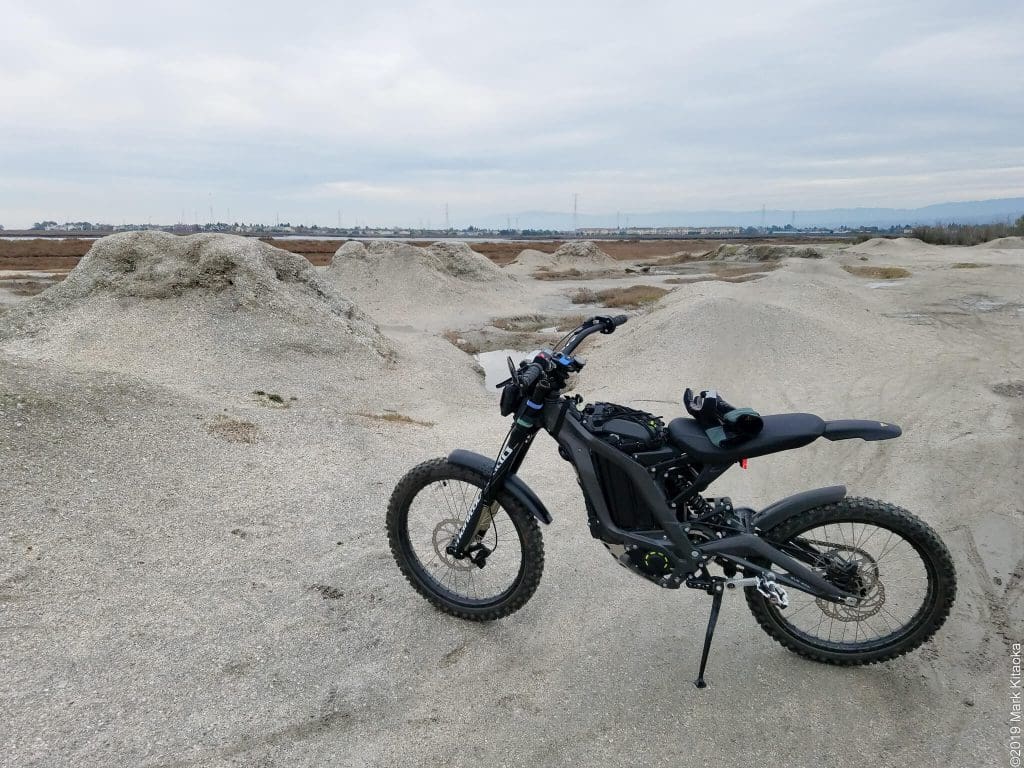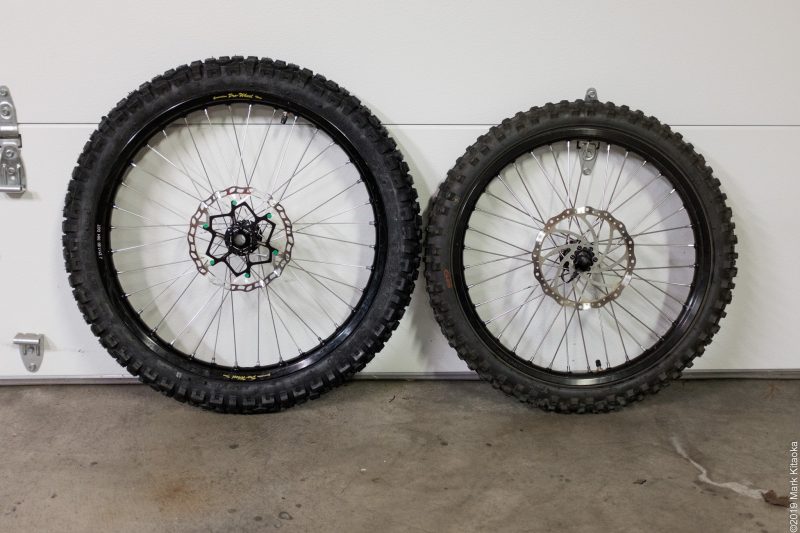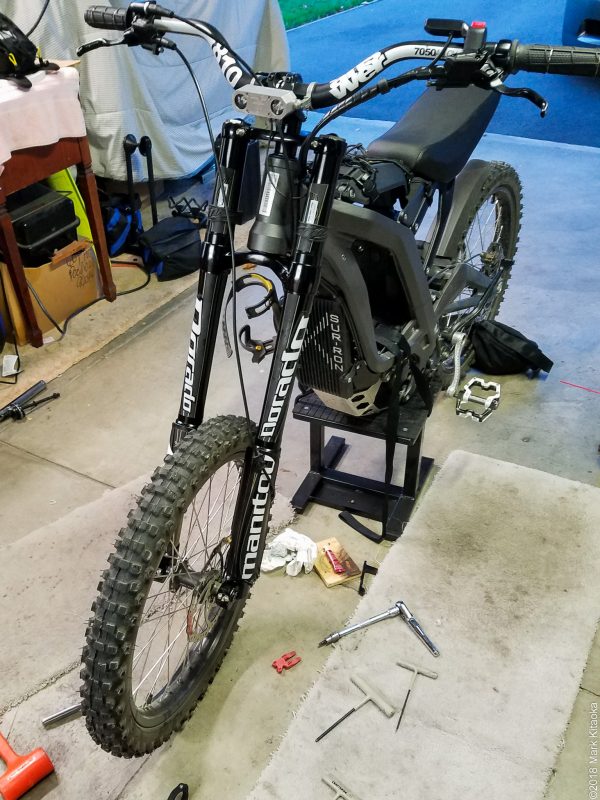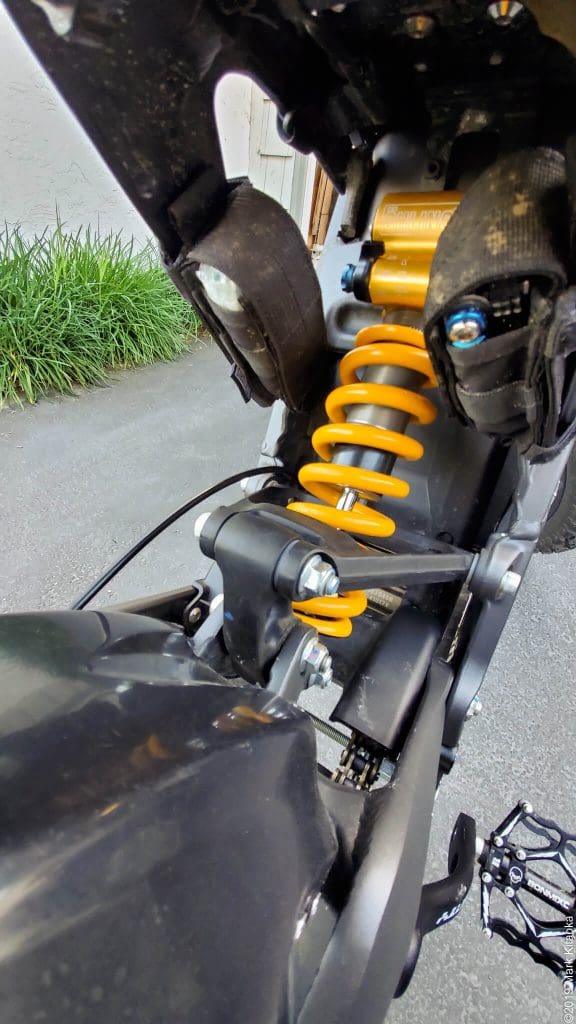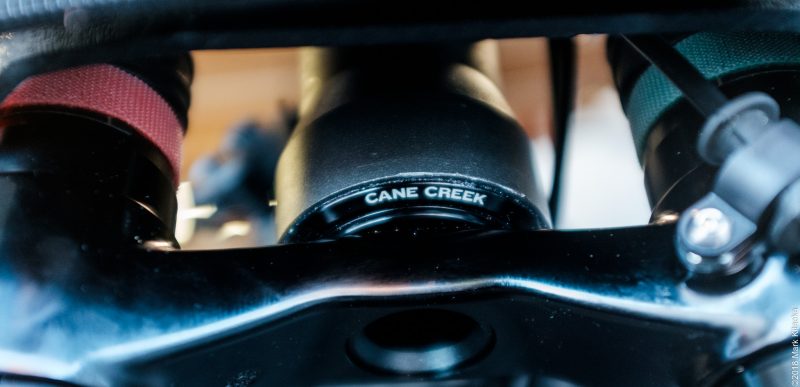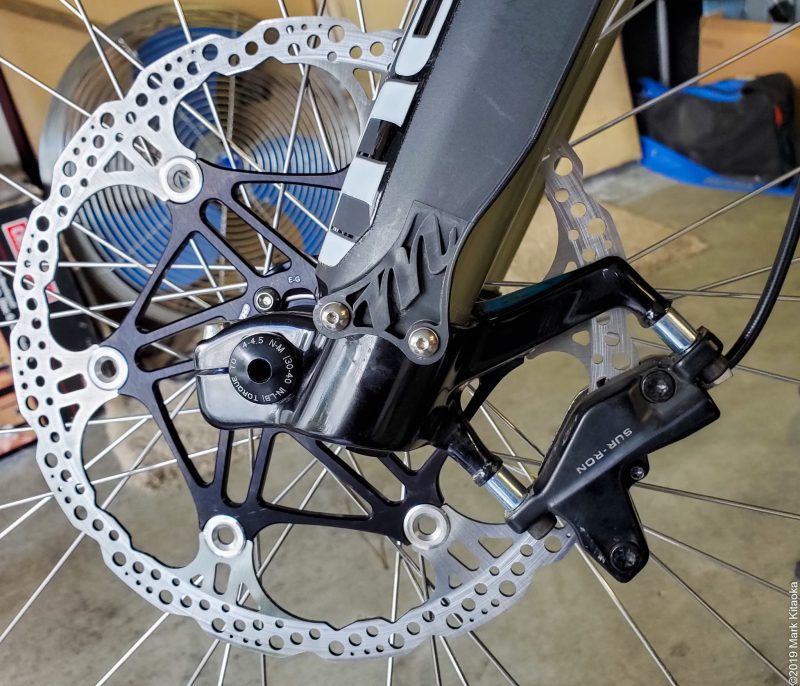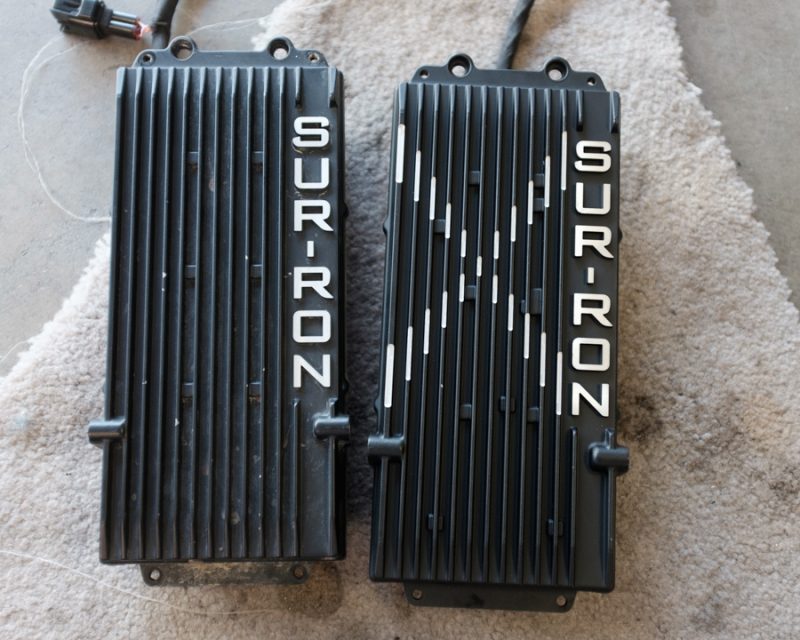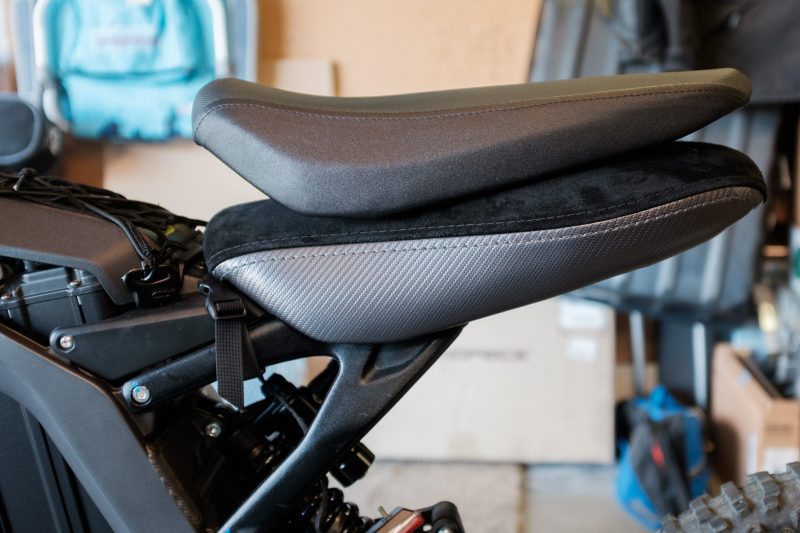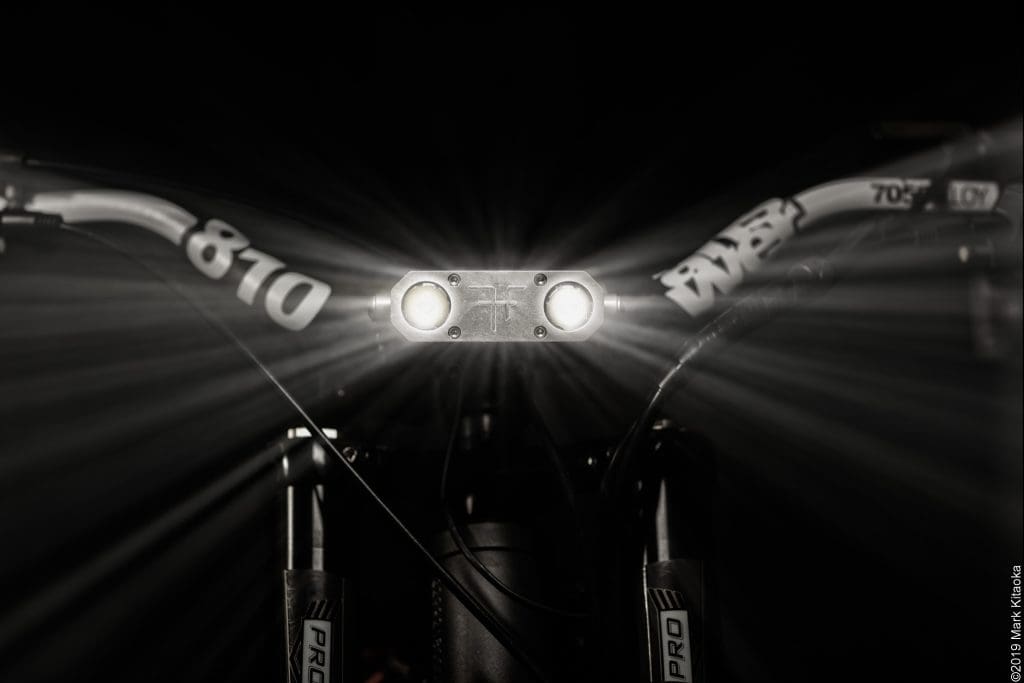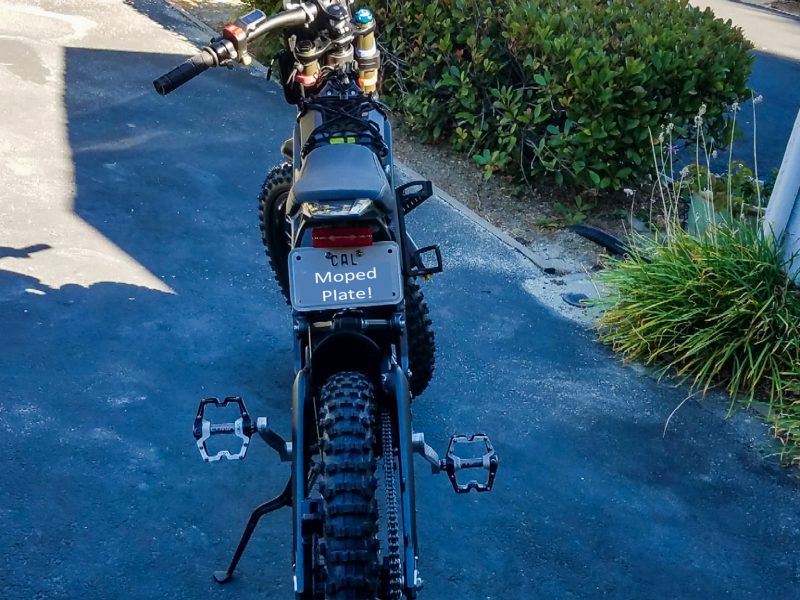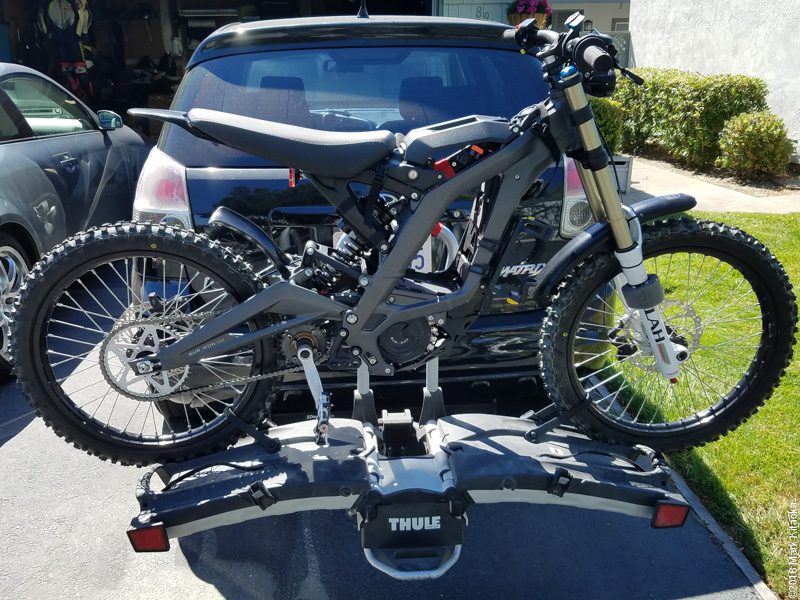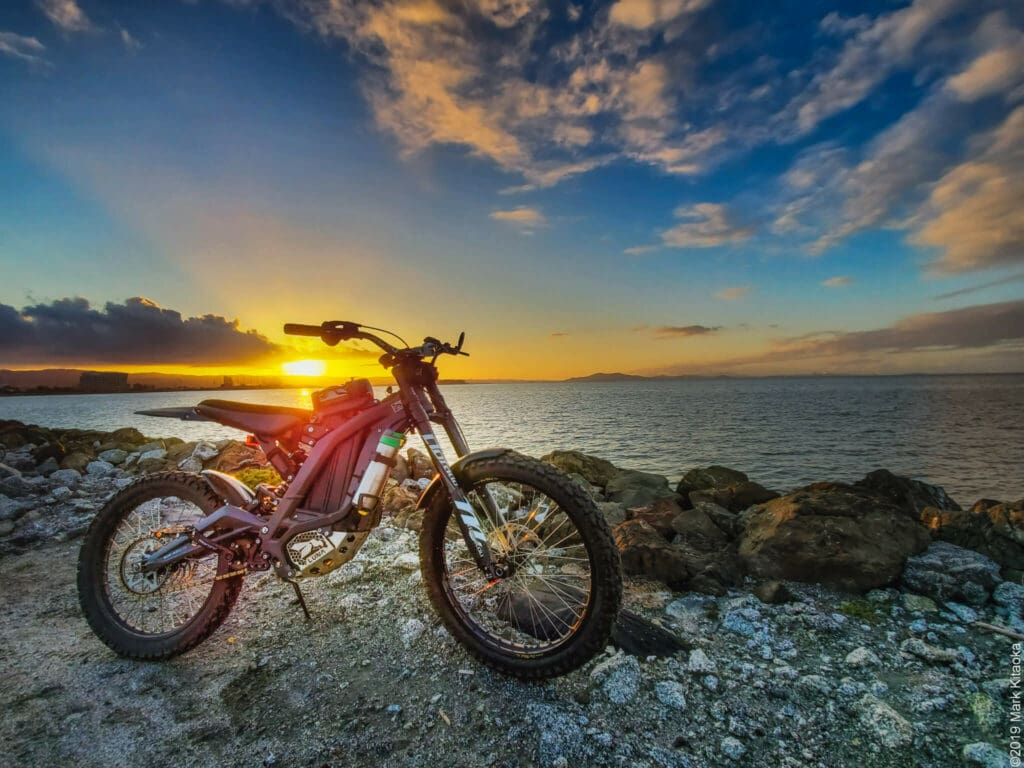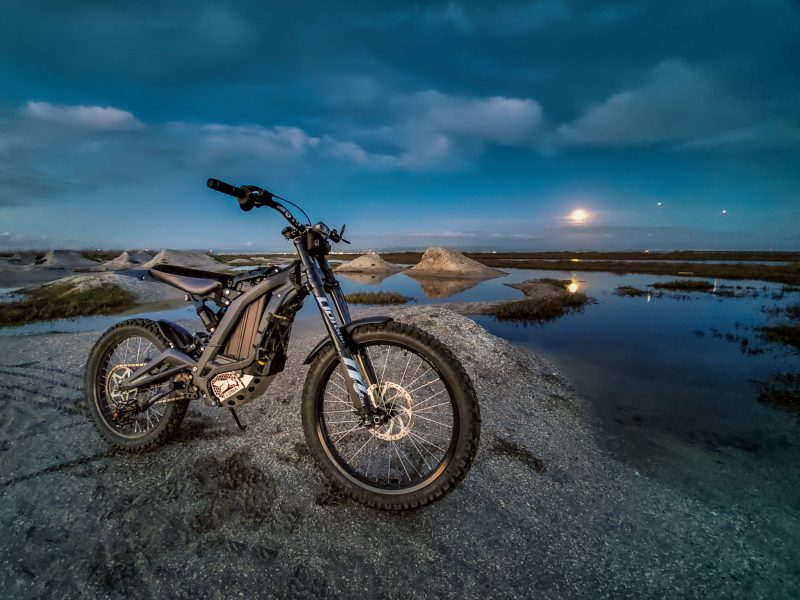Unlike some owners, I don’t use my bike for commuting to and from work. Many owners do. Nope mine is just for recreation, so after a year the 1,956 miles amassed to date are just fun miles.
There are plenty of articles, forums, and videos about the Sur Ron Light Bee. I wanted to write a ‘long term’ (as long as 12 months is…!) about my own experience with the electric bike. You can find the bike’s stats, measurements, etc. anywhere on the web.
I wanted to write about my actual time and experience with this incredible piece of engineering rather than just facts and figures. I find that so many articles are only written when a product first appears in the marketplace. That’s fine, but what I want to know is what the experience is long after a product’s initial release. You know, after the bloom is off the rose….
First I’ll give a little background about my own riding experience and history. I’ve raced motocross at Saddleback Park, Carlsbad, and desert racing too – the Barstow to Vegas race twice, and club road racing. I eventually went on to teach road racing.
I purchased my Sur Ron Light Bee from Lunacycle on April 12, 2018. I had to wait because they were back ordered on the color I wanted, steel grey.
The Arrival
Mine arrived two painful months later via FedEx Freight on June 13, 2018, and boy was I stoked! I felt just like a 12-year-old boy seeing his first Playboy Magazine. Well, maybe not quite that excited…
I had originally planned to fly down to El Segundo where Luna is located to actually view the bike since I live in the San Francisco Bay Area. It would have been a relatively inexpensive flight into LAX. LA is where I grew up and I knew Luna was just a short jaunt from the airport.
But after watching Jackson do a teardown of the bike I opted to not fly down to see the bike before I purchased it. He seemed sincere and honest in the video and besides, what I witnessed in the video was impressive.
Mind you I have never purchased something this expensive sight unseen! I’d been burned by prior crowdfunding campaigns, but this was different. It is NOT crowdfunding; it’s a real bike from an actual brick and mortar company.
Assembly
Assembling the bike was very straightforward and there was an excellent YouTube video about how to go about doing so. I was very impressed by the build quality. It was just as Jackson had described in his YouTube video.
My personal assessment of the build quality after having worked on Yamaha, Bultaco, Penton (now KTM), Maico, Kawasaki, Suzuki, and Honda motorcycles, is the Sur Ron’s build quality approaches that of Honda. Captured fasteners instead of loose nuts, precise alignment of fastening holes, excellent welding; basically high-quality engineering and manufacturing.
I was very intrigued by the rear shock linkage. Rather than just a direct link between the swingarm and shock, Sur Ron had designed a progressive linkage system which is much more in line with current motorcycle technology. It made me very anxious to test it out once assembled.
After inspecting all of the bolts I surmise that in China the Sur Ron Corporation must have hired several two thousand pound gorillas to torque down the fasteners! Seriously all of the fasteners are way overtightened. It’s great they’ve used blue Loctite on the fasteners, but with the amount of torque put on them…. why?
Riding the Bike
My First Worrisome Encounter
I ran into a worrisome issue during my first week of owning the bike. It would intermittently stop running while I was riding. There was no rhyme or reason for the sudden failure.
Sometimes it happened immediately as I was leaving my garage with a 100% charge. Other times it would happen when I was 10 miles out on a trail with 60% on the battery. The headlight and speedometer were still illuminated, but the bike would not move forward at all.
In each case, if I turned the ignition off and then back on it would run. The culprit ended up being the brake cut off sensors. They are threaded into the brake master cylinders and held in position by a very tiny set screw.
The front brake’s set screw was loose which caused the magnetic sensor to move in and out of alignment causing the cut-off. I removed both sensors and after that everything was fine.
There are three more sensors on the bike, a tip-over sensor located just above the controller, a throttle return sensor and a kickstand sensor. I’ve retained all of those on my bike without issue.
The culprit, the brake cut off sensor.
I filled the cut off sensor hole with Instamorph.
When people ask me about the bike there are always two questions:
- How much does it cost?
- How far can you go on a charge?
Range
The range of my bike will vary depending on the terrain where I’m riding, my speed and the use of the throttle. The more I’m at full throttle, the less mileage I get. The steeper the terrain, the less mileage I get. Makes perfect sense, doesn’t it?
There are only two modes on the bike, EP, and Sport. (No idea what EP stands for btw) EP mode cuts the amount of electricity in half which results in less acceleration and power. I occasionally use EP mode when Sport mode is not needed to extend my range.
So without any regard for mileage or conserving throttle and running in Sport mode in varied terrain/surfaces (hills and loose sand or dirt), I can COMFORTABLY get 20 miles. And for those who have never ridden HARD off-road – 20 miles is a LOT of miles.
In EP mode on the street, I have gotten 43 miles no issue. And as I’ll explain later on, before I replaced the OEM seat 20+ miles is torture on your tush!
The bike’s BMS (Battery Management System) has a safety feature. If you are riding in Sport mode and your battery level falls below a certain percentage, the BMS automatically switches you to EP mode.
I say a ‘certain percentage’ because I’ve had my bike go into that mode anywhere between 13% to 21% as indicated on my battery’s charge indicator. It just meant that I had to ride back to my starting point in EP mode instead of Sport mode. No big deal for me.
This is the battery indicator on the battery itself, not on the speedometer panel. My understanding is the newer models automatically illuminate this panel whenever the ignition is turned on.
Mine does not, you must press the little button to the right to view the battery indicator. I’m not certain how accurate this gauge actually is in measuring the state of charge remaining. Just FYI.
Although this has never happened to me if the battery gets so low that when you place it on your charger and it does not take a charge, there is a procedure to ‘jump start’ charging your dead battery pack. That has been covered in this YouTube video shown below.
And from almost dead to a full charge has taken me just a tad under 3 hours to get my battery pack up to 100%
First Few Months
I rode my bike box stock for the first four months. I was impressed when adjusting the suspension’s compression and rebound adjustments. It was fun to do and resulted in varying degrees of traction.
I was having a ball and marveled at the power and lack of weight to the bike. It felt like a true cross between a full-suspension mountain bike and a small displacement ICE (internal combustion engine) bike.
Oh and the lack of noise! I live in a suburb of the Bay Area and because the bike is darn near silent I can ride at night, right next to homes in an area called “Bump City” which is this cool area kids ride their BMX bikes, people fly their model airplanes and others drive their remote-controlled cars.
Since it’s next to the Bay yet surrounded by homes riding an ICE bike would be reported to the local PD immediately, especially at night. Because the area is very popular, I try to go there during the workweek, later in the day or in the evening when I have it all to myself.
Size
As I’ve mentioned before I was an admin on the private Sur Ron Facebook page. One of the primary questions potential buyers had was is the bike large enough for anyone 6 feet or taller. The short answer is yes. Many of the owners were 6-3 and simply installed taller handlebars.
Performance Modifications
One of the pleasures in owning the Sur Ron is its ability to be modified. Unlike a bicycle which for me is too simple mechanically or a regular motorcycle which at this point in my life is too much of a hassle, the Sur Ron is just right. And this would be a good time to say that the Sur Ron Light Bee occupies a space that in my mind did not previously exist. Let me explain.
When Apple introduced the iPad many folks tried to pigeon hole it as a phone and then as a laptop. Because it fell right in between those two devices, people just didn’t know what to do.
In my mind, the Sur Ron is currently in the exact same situation. Not a bicycle and not a motorcycle. People are trying to see how it compares to a KTM-xxx or a Honda-xxx. The reality is it’s neither. It has created a space that’s new, just like the iPad created the ‘tablet’ space.
I’ve modified my bike because of what and where I ride most often. I’m spoiled having ridden and raced on excellent motorcycle suspension and although my racing days are long over, that’s what I wanted for this bike too.
My modifications in my own order of importance:
Performance mods
- X controller with Regen
- Forks/Headset – Manitou Dorado Pros
- Cane Creek headset purchased from Luna
- Ohlins TTX22 Rear shock
- 21” Front wheel custom laced
- 225mm floating front rotor (OEM is 203mm)
From 19 to 21
In terms of hill-climbing ability, this little bike reminds me of the Little Engine that could! It just keeps climbing and climbing and climbing! The only limitation to its climbing ability is traction at the rear wheel.
Because the OEM tires are 70/100 19” they are thinner than off-road motorcycle tires, but then again this is NOT a normal motorcycle. The rear tire wore out rather quickly, but the front remained fine.
Because I ride in such a wide variety of terrain I opted to switch to a dual-sport tire. One that is good on all the surfaces I normally encounter. If I was ONLY riding in deep sand or mud, I’d have opted for knobby only tires. Instead, I switched to Shinko 244’s and have been very happy with their performance.
I also opted to have a custom 21” front wheel built for me. Why? Well because the Sur Ron’s parts are primarily mountain bike units the 19” front rim had limited tire choices. A 21” front rim is the defacto size for off-road motorcycles, so the tire selection is endless.
Plus I felt the handling would improve for what/how I ride over a 19” rim. When I presented my thoughts to others on the FB group, they all said: “Oh, that will be too heavy.” Yet when I asked all of them “What handling issues did you find when you rode a 21er on the bike?” SILENCE.
Not any of them had actually ridden a Sur Ron with a 21” front rim/tire. It reminded me of forums where so many people like to pretend they know, yet don’t actually know. So for me, I will simply say that the change is wonderful for what/how I ride.
The front end is more planted in turns, especially those that are off-camber; rutted fast downhills are much more manageable with the 21er. I love it.
Custom moto 21″ wheel on the left – OEM 19″ on the right
Suspension
For 3500.00 I’m damn impressed with the suspension. The suspension offers eight inches of travel in both the front and rear. Compression and rebound are adjustable on both the forks and the shock. That comes standard? Really?!
Heck even on all of my motorcycles if I only had rebound on the stock suspension I was impressed. Mine came with the RST forks which use springs rather than air springs. My rear shock was the FastAce brand. Both were completely fine for street riding, smooth dirt, fire roads as well as small bumps or medium jumps.
The reality is most people NEVER USE 100% of a suspension’s capability. And if they think that the primary function of suspension is to dampen bumps and landings off of jumps, well…..there’s so much more to it than that. Is it necessary to change the suspension if you’re going to ride it on the street or other areas I specified above? Oh hell no.
Having raced on Ohlins forks and shocks in my road racing days, the plushness and ability to keep constant contact with the surface was heaven for many aspects of going faster more safely. Good suspension does that. So switching to Dorado’s first then highlighted the weakness of the rear shock. So I opted to replace it with an Ohlins TTX22 with a 502 lbs. spring for my weight.
Manitou Dorado Pro forks
Ohlins TTX22 rear shock
How do those changes in suspension manifest themselves? Well in turns that are off-camber, or very loose in surface I am able to hold a line much better than before. And I can both brake later and increase acceleration earlier exiting a turn.
And over bumps… man the bike is just plush, reminiscent of my full Ohlins suspended race bike. For me, handling and braking are much more important than adding power. Everyone is different though.
Headset
The single element of the Sur Ron I felt was subpar compared to the rest of its construction was the headset. So when I opted to replace my RST forks with Dorado Manitou Pros I thought it was a good time to change the headset to a seal bearing type from Cane Creek.
The OEM bearings are retainer type ball bearings and although mine did not feel loose or bind, I just felt more comfortable replacing them with a sealed bearing configuration.
Brakes
Some people on a private Facebook Group complained about the brakes on the bike. The complaints were about the brakes feeling ‘spongy’ or the lever almost reaching the handlebar grip during stops.
Having come from a racing background I know the value of properly bled brakes, bedding pads in properly and so forth. I did both of those things to my bike before I started riding. I did a bleed of the brakes, which use mineral oil just like most mountain bikes because they are mountain bike brakes.
I also bedded my pads in properly. If brakes are experiencing a spongy feeling or the lever is almost going to the grip before stopping, it’s an air in the brake line issue.
To date, I have the OEM brakes and am very happy with their performance. They’re four-piston binders which work very well, have great modulation and stop the bike securely. I have changed the brake pads to an organic compound which does not last as long, but I prefer the feel and modulation of organic over semi-metallic or full metallic.
It’s just a personal preference. I believe many folks feel that if brakes bite hard at the beginning, they feel the brakes are “powerful.” I too like power, but without subtle modulation, it’s not my personal preference.
(Above) OEM Calipers using a 12.62mm spacer to adjust for the Hope 225mm floating rotor which replaced the OEM 203mm solid rotor.
I prefer a larger floating rotor for more power and modulation.
USA Gen1 X Controller
About six months into ownership Luna was offering a limited number of X controllers. They were of the sine wave rather than the controller that came on my bike – the square wave type. And the X controller offered regenerative power and braking too!
To explain, imagine a sine wave like a nice curved chart. The power ramps up to a smooth curve. A square wave has a sharp edge in terms of acceleration.
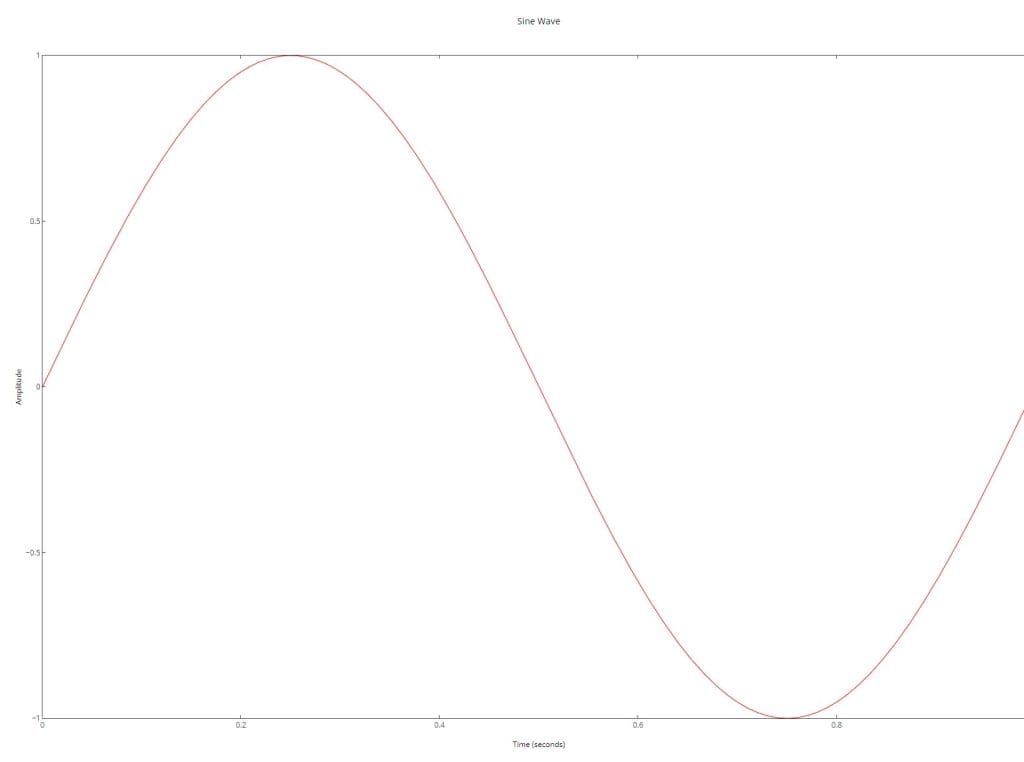 |
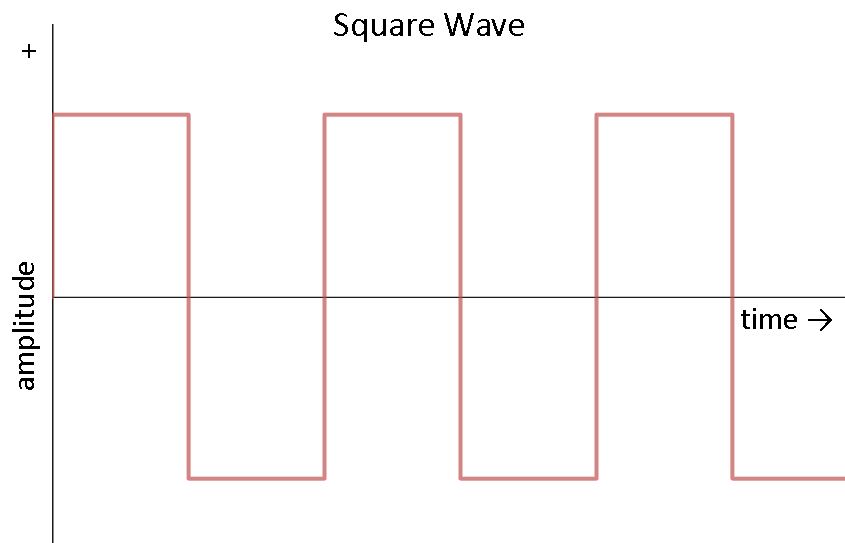 |
Sine Wave & Square Wave
I happened to be one of the lucky 50 who got the X controller with full regenerative power and braking. The smoothness of the throttle is very different than the non-X controller. It is as smooth as a well-tuned ICE throttle and the ‘engine braking’ (regen) is like third gear deceleration on a four-stroke bike.
In a non-X controller bike, there is a definite hit when you engage the throttle. It is not smooth and letting off the throttle makes the bike coast like a bicycle, no deceleration unless you’re braking.
I’m sorry to say that all X controllers in the US, EU, AU, and others with X controllers did not offer regen in the controller. The smoothness is there, just no regen. I feel damn lucky and happy to have one of the Unicorn X controllers! I hope Sur Ron brings them back for all future Xers too.
My friend Matt who is one of the admins on the private Facebook Group created an excellent video comparing and testing the X and Standard controllers (shown below). Not only does it illustrate the performance differences, but the regenerative power put back into the pack.
Update as of June 2019, my understanding is Sur Ron did enable regen on new X controllers, but to what degree I’m not certain.
Comfort Modifications
- Renazco custom seat – the OEM seat is a torture rack!
- ProTaper 3” rise handlebars – I wanted a more upright riding position
- Fischer Fab House Headlight – I ride a lot at night. Trail riding is very different than street riding for the amount of illumination necessary.
The vast majority of my riding is off-road. I am very fortunate to have a wide variety of choices which are a very short distance from my driveway. As a matter of fact, I only have to ride on 0.8 miles of public road to get to off-road areas or a bike path.
Seat
After about a month I noticed that my ass was killing me after only 25 minutes of riding! The OEM seat is only 5.5 inches across at its widest point. And my butt resides in the back portion of the seat where the padding is much thinner than in the middle. It’s not a big bike and I’m not a big guy at 5-8 170 pounds with a 31” inseam.
So I found a craftsman who makes custom dual sport seats, James Renazco Racing in Santa Rosa, CA. I wrote to James, sent him my measurements, weight and my seat pan. He called to discuss fabric options and when I got my new seat I was in heaven.
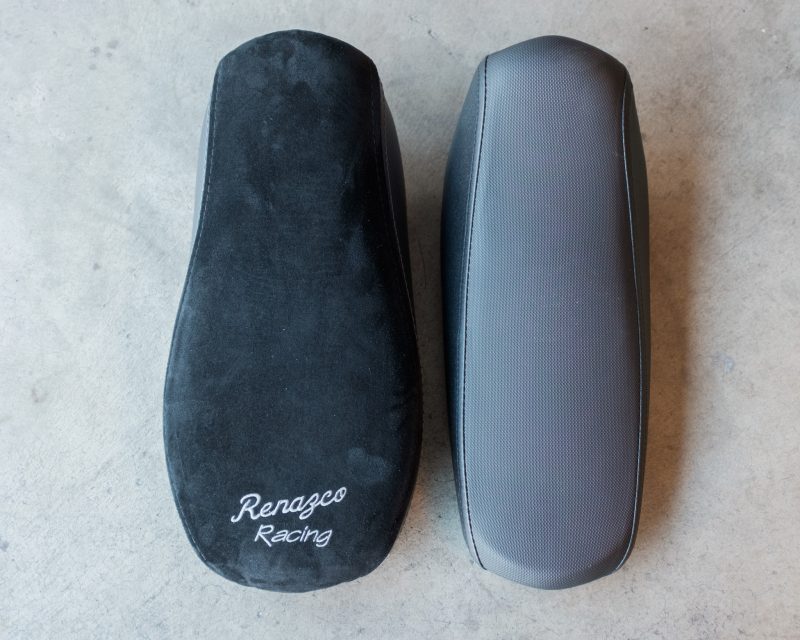

That’s good news. And man the difference is night and day in terms of comfort. My battery runs out before my butt does now.
Handlebars
The OEM handlebars are very flat mountain bike type bars. I wanted a more upright seating position as well as to not lean as far forward on descents. So I replaced them with the Answer ProTAPER 810 Handlebar 3″ Rise 31.8 Black.
Headlight
The Fisher Fab House headlight has several different levels (80 lumens and 750 lumens flashing not shown). Illumination on the street is VERY DIFFERENT than lighting needed out on a trail in total darkness.
So the OEM headlight, although fine for the street and most venues was inefficient for where I ride at night. The OEM headlight does NOT have an on/off switch, it remains illuminated whenever the bike ignition is on. Same with the rear tail light.
The examples below are at 50 yards from the FFH headlight. The light pattern width is approximately 10 yards.
750 Lumens
3200 Lumens
Moped Plate – California
I had applied for and received a California moped plate which I use when necessary. Whenever I go to OHV parks it is required to have either a Red or Green sticker or a valid CA license plate.
Most jurisdictions don’t yet know how to classify these or any other electric vehicle so having a plate is the easiest method. Plus in CA there is no annual renewal fee for moped plates. $21.00 for the life of the vehicle is a sweet deal in my view!
I ‘originally’ installed the plate when riding on public roads and then removing it when off-road or on bike paths. But what I discovered is leaving the plate off works best for my use. I have the pedal kit (I would not have purchased it had it not offered the pedal kit) so it ‘looks’ like a bike.
Sure there are ‘some’ who poopoo the pedal kit and I understand that. It does NOTHING to propel the bike anyway. But when I’m on MTB trails or on bike paths people look at the bike, but when they see me ‘pedaling’ it’s no big deal. But as soon as anyone sees a ‘plate’ then how the bike is viewed is very different.
I like having the option of having the plate, but in reality, I use it to enter OHV parks or when I’m just going to ride on public roads. But even then I like being viewed as a bicycle.
And I use to switch back and forth between the pedal kit and pegs, but now I don’t. I’ve become accustomed to where they are and it’s no big deal anymore.
I knew a racer who lost both of his legs due to an on-street accident. He figured out how to configure his 900RR to adapt to his new disability and still raced! If he can do that, then I could get used to pedals versus pegs. Enough said on that, I’m no princess.
How I Transport My Sur Ron
When I want to transport my bike the OHV parks or to take it with me I use my e-bike rack. Yep, no need for a truck or trailer!
Yep the bike fits nicely on my Thule bicycle carrier.
In Conclusion…
I want to mention that my own experience is with the Sur Ron which is imported into the United States by Luna Cycle. The EU and other countries have Sur Rons that have been homologated for street use having different head and brake lights, turn signals and reflectors as well as a different instrument panel. I have no knowledge or experience with those versions.
The Sur Ron is a remarkable bike, remarkable. Its fun factor is unmatched by any machine I’ve owned or ridden. I will simply say that after a year of ownership I would not hesitate one moment to recommend this bike to anyone who wants one.
If I only had enough money to make one change to a box stock bike it would be to upgrade the seat. I cannot stress enough how uncomfortable I found that thing to be! And anything that takes away from me having seat time on this bike irritates me to no end …and in this case, it irritates my butt to no end too!
I left Facebook and developed a website to assist other Sur Ron owners or potential owners with the experience I’ve amassed in a year of ownership.
Pros
- FUN & FAST
- Reliable
- Just come home and plug it in
- No fluids/transmission/noise/smell
- Easy to move around
- Did I say fun?
- Lightweight
- Unintimidating
- I get tired before the battery runs out
Cons
So what are the downsides I’ve experienced in a year…. hum….
- Spent too much time tinkering when there was no need to do so
- Attracts attention
- Trying to avoid talking to people about the bike when I stop
- Easy to pick up and steal by throwing it into a van
- No real luggage storage options
- Going over the handlebars while jumping without my full-face helmet on – concussion
- Seriously I have really tried to come up with some downsides. OH, I swallowed a bee because I was smiling! Man, that was weird!
Specs
- Manufacturer: SUR-RON
- Price: $3,890.00
- Made In: China
- Review Date: July 2019


